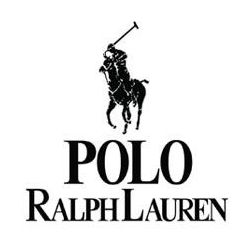The High Court in Pretoria has recently ordered the cancellation of numerous trade mark registrations for POLO and logos which include a polo player and pony on the basis that the marks are not distinctive and do not function as a badge of origin. The judgment opens with the following which sets the scene:
"What is in a name? A rose by any name remains a rose. Oft' quoted oft' used, albeit in a dismissive tone. A trade mark. A Badge. Origin. Three different concepts. Used together, thresi only one concept, namely, a trade mark is a badge of origin."
For many years, there has been two POLO brands for sale on the South African market which are mostly used for clothing and fashion accessories.
The reality is that these two brands belong to different entities, one of which is Ralph Lauren and the other a South African company, LA Group (Pty) Limited ("LA Group").
The marks of these separate companies are copied below from which it can be seen that for the LA Group mark, the pony faces to the right and for the Ralph Lauren mark, the pony faces the other way.

LA GROUP MARK

RALPH LAUREN MARK
According to the judgment, LA Group and Ralph Lauren entered into an agreement in terms of which Ralph Lauren could register its POLO and POLO PLAYER LOGO in South Africa and that the both parties could use their marks alongside each other in the same industry. The goods of both parties are sometimes even in the same outlets and online retailers.
Now a third party has entered the picture which is the US Polo Association (USPA) which has been selling its products in South Africa, via its South African distributor, Stable Brands, for a year of two. The USPA's logo is copied below:

This case involved neither Ralph Lauren nor the USPA but was between LA Group and Stable Brands.
The cancellation case started when LA Group filed infringement proceedings against Stable Brands, who then filed a counter-claim for the cancellation of LA Group's extensive portfolio of marks which included POLO (as a word mark) and logo marks which included POLO in various classes.
The common feature of LA Group's POLO trade marks was either the word POLO or a logo depicting a polo player on a horse, or the combination of the two.
One of the attacks on the POLO marks was that the word mark POLO and / or the POLO PONY & PLAYER logos cannot distinguish the products of LA Group from those of others in the market.
According to the court, the word "polo" is descriptive and non-distinctive for clothing and sports, stating that the ordinary meaning and dictionary meaning thereof is that of the sport polo and it is also used to indicate specific pieces of clothing, such as a polo shirt and a polo coat.
The court also took into account the fact that the word "polo" is used to describe various items including Levi's Polo Dress, Nike Polo Shirt and a Puma Stripe Polo Jersey and concluded that the fashion industry considers the use of the word "polo" not to indicate the origin of the clothing, being the purpose of a trade mark.
The Court ordered the cancellation of numerous trade mark registrations for POLO, the POLO PONY & Player and DOUBLE POLO & PLAYER logo. As these marks were filed in a various classes, this has meant that the court order extends to many registrations in the name of LA Group.
This matter is reminiscent of the case in which we acted for Ackermans against Truworths in relation to the term "THE LOOK" which was registered for clothing. In that case Truworths issued infringement proceedings against Ackermans for its use of THE LOOK in the phrase THE LOOK FOR LESS. We also filed a counter-claim on behalf of Ackermans for the cancellation of THE LOOK trade mark registration based on similar considerations as set out in this case, which was upheld in the Supreme Court of Appeal which resulted in the cancellation of THE LOOK trade mark registration in the name of Truworths.
It is therefore important to ensure that when choosing a mark that it is distinctive and can function as a trade mark to ensure effective protection when it comes to enforcement thereof.
For now, the POLO case has been appealed and we will report again when there are any further developments.
The content of this article is intended to provide a general guide to the subject matter. Specialist advice should be sought about your specific circumstances.

